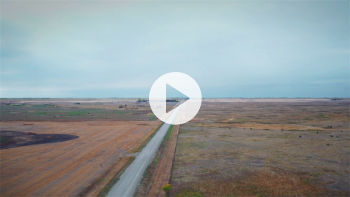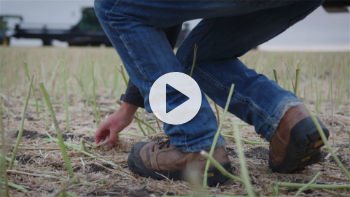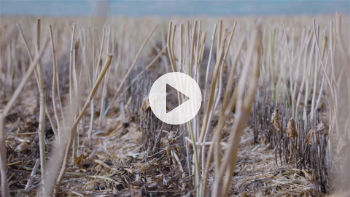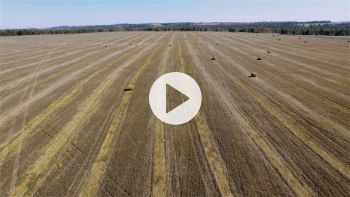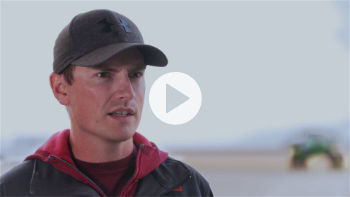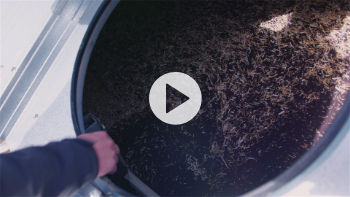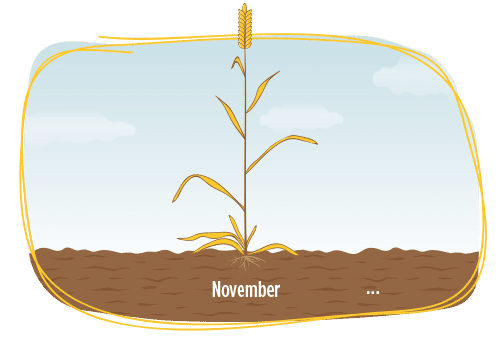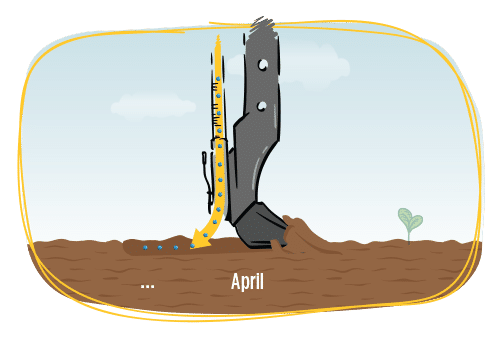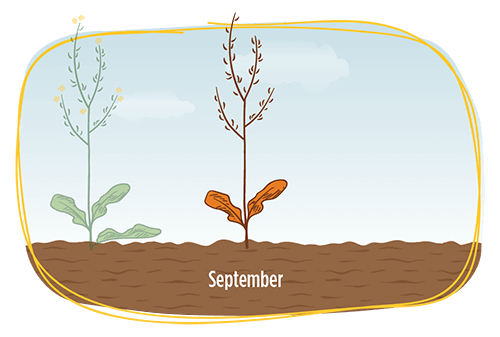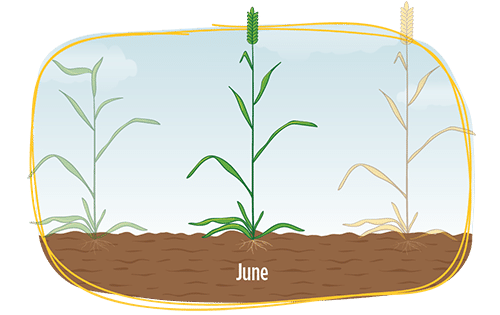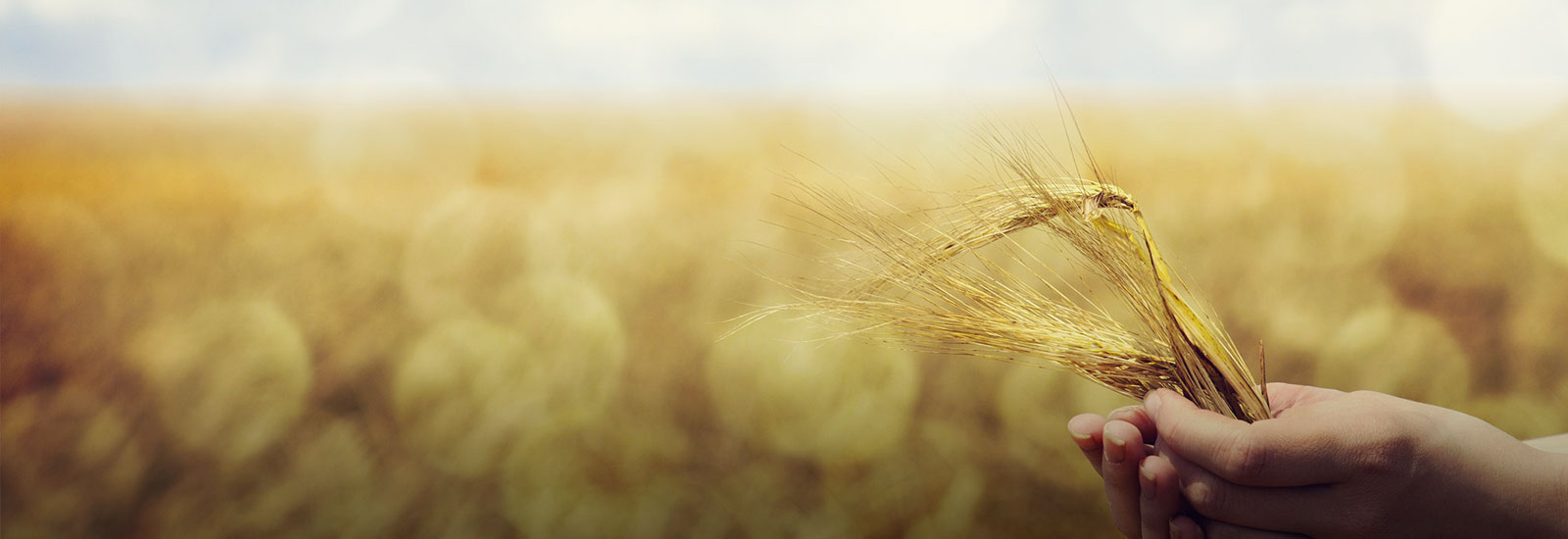
All of our equipment is run by computers and what we can do with this information is pretty incredible. How much more efficient we can be.
Jake on Sustainable Farming
Jake Leguee is a large-scale farmer in Saskatchewan, Canada. We visited Jake to learn how he practices sustainable farming.
Videos
Integrated Pest Management in Canola with Jake Leguee
Jake Leguee
Farmer, Saskatchewan, Canada
Integrated Pest Management in Canola:
As Explained by Jake Leguee
“I’ve always felt that rotation was the first step in managing pests. If we can grow a different crop year over year on the same piece of land versus growing the same one over and over again, pests can adapt to it. If you put a canola crop on a field five years in a row, weeds will build up over time. You’ll have the same trouble with insects, and disease. When you start growing the same crop over and over again spores will build up in the soil. That’s when we run the risk of more serious diseases. ”
“We have a lot of options when purchasing canola seed, which is good because we can’t grow the same variety over and over again if we want to make progress. Every year we’re testing new varieties. No matter the variety, the seed comes treated and ready to go into the field.”
“There can be lots of insect trouble in canola. We deal with Flea beetles every year. In the spring, the canola plants are small, only about the size of a couple of dimes. At this stage, they don’t have a lot of resistance to the beetles that chew on their leaves. At the moment we have seed treatments to deal with them but there are changes in legislation going on in Canada and we’re concerned that we may lose this tool.”
“In canola, if you get a heavy enough crop, and it stays wet, Sclerotinia will build up in the canopy of the plant. Once that process starts, there’s little you can do about it. What you have to do is a preventative spray. We need to go into the field and assess its condition. We look at the yield potential and then spray based on the potential for disease.”
“The biggest challenge we face is the same challenge we’ve always faced, the weather. We could get a 100 km/h wind that could cause a lot of damage to our canola. Or it could rain for a month. Or it could decide to snow next week.”
“The canola that we’re taking off today is somebody’s cooking oil, or the wheat that we took off yesterday is somebody’s bread. And obviously, we think about that when we’re growing the crops. And we want to make sure they’re safe. That’s very important to us.”

